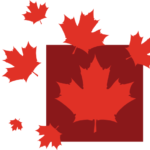For the past two months, the story of COVID-19’s spread across Canada has been the primary focus of mainstream news organizations. While this story has garnered much attention from media critics, little attention has been paid to how Canadian ethnic media outlets have covered the coronavirus outbreak. This analysis has been produced with the recognition of this fact in mind.
The review of hundreds of media clips from February 28 to May 1, 2020, shows that ethnic media has been effective in keeping its audiences informed during the COVID-19 outbreak.
When it comes to conveying government messages, particularly those of Prime Minister Justin Trudeau, the tone of the coverage has been neutral and balanced. Furthermore, media across the ethnic spectrum have likewise reported many of the key government announcements to fight COVID-19, such as orders to self-isolate, coupled with the threats of criminal penalties, in a neutral manner.
Did the federal government downplay early warnings?
Did Canada’s federal government take too long before declaring a crisis and did it downplay suggestions that urged it to act sooner? A number of reports published and aired in ethnic media have addressed this matter reflecting on what they considered as a long time for Canada to respond to the crisis and how it handled the urge to close the borders.
There seems to be a growing consensus, in particular among the Chinese community media, that Canada reacted slowly in its response to COVID-19. In particular the Chinese media in Canada have insisted that the pandemic was downplayed. Other reports point out to some form of disregard for the tips and warnings offered by health authorities.
Others, including Italian and Polish ethnic media, have reflected on the COVID-19 experience in Europe and have drawn comparisons between Canada and European countries reactions to COVID-19. Much like the Chinese ethnic media, these examples were more assertive in urging Canada’s governments to take more radical steps.
Reporting on messages from other government agencies: controversies
Generally speaking, the coverage across ethnic media was more contentious when reporting on the messages from other government agencies. Central figures in Canada’s fight against COVID-19, such as Dr. Theresa Tam, Canada’s top doctor, have shouldered most of the burden and pressure given their prominent public roles during the pandemic. The public communications from the federal Minister of Health, Patty Hajdu, and to an extent the Minister of Public Safety, Bill Blair (both sitting on the government’s special COVID-19 committee) have also received considerable media scrutiny.
Comments made by Hajdu, in particular, when she suggested that Canadians “stockpile food and medicines in their homes” appears to have been controversial in ethnic media. Many outlets reported that Hajdu’s message lead to panic-induced buying sprees. “Chinese people in Metro Vancouver snap up grain,” wrote Chinese media Sing Tao Daily in its web edition following Hajdu’s advice to store food and medicine at home. It cited people saying they had no confidence in the market supply and the government’s ability to manage and control.

In a similar fashion, the Russian web publication Knopka wrote that: “As panic over coronavirus heightens, Canadians and Americans stock up on goods at Costco” chronicled how consumers flocked stores as panic over the spread of the coronavirus intensified. The article further reported that the same thing was happening in California, claiming that over 500 people visited one Costco store in the first half-hour of its operation. However, it cautioned readers that according to Health Canada such a panic was unjustified, and there was no need to stock up on goods for weeks ahead. Hajdu later clarified that her advice was intended to be practical because people should always be ready for emergency situations.
Minister Hajdu was also subject to criticism on another comment made before the House of Commons on March 12, 2020, when she said that between “30 and 70 per cent of Canadians could become infected with coronavirus.”
In the wake of these comments, some ethnic media outlets reflected a deep concern with such predictions, some considered them “unexplained and doubtful” with little scientific basis. Others, by contrast, attempted to reassure their readers and calm the situation. “Panic will only help the pandemic to spread” wrote the Chinese Canadian Times. Another Chinese publication remarked that the federal Health Minister should not be making panic-stirring comments.
The strongest praise and criticism observed in this analysis of ethnic media content was focused on Dr. Theresa Tam, Canada’s Chief Public Health Officer. Tam was scrutinized about contentious issues such as whether it is better that the public wear the masks, or not, as highlighted in the Italian Corriere Canadese with the headline: “Does it really help to use the masks? Yes, no, maybe.”
These criticisms were brought forward after Tam earlier had claimed that masks were useless in protecting people shopping or walking in the streets. In this analysis, her role is seen as very important but controversial. Other areas that have stirred debate have been her hesitation to suggest closing borders, and her reliance on advice provided by the World Health Organization. At worst, some ethnic media outlets have insisted that she resign or be fired.
COVID-19 as a political ballgame
Besides being a human tragedy on an unseen scale, COVID-19 has become akin to a political ballgame between the government and opposition. Whereas in some countries the political bickering was left aside during crisis, this has not been the case in Canada. Whether Canada relied too much, too little or just about right on World Health Organization advice, this will be more a matter of further debate and emerging scientific evidence. The good news is that Canada’s coronavirus outbreak has slowed down and ethnic media most of the time have successfully accomplished their role of public information through these unprecedented times.
This analysis has been created as a service to readers who wish to follow news and commentary in languages other than English and French, in partnership with MIREMS. Mirems monitors 600 outlets and 30 language groups daily, by far the most comprehensive read of multicultural media available in Canada.
NewCanadianMedia.ca is Canada’s premier web site dedicated to news and views about the one-fifth of Canadians who are immigrants. You’ll find original journalism from an immigrant perspective along with content produced by our partners in Canada’s ethnic media. Our content provides fresh insights into developments in politics and society, enhancing your understanding of our diverse world.





